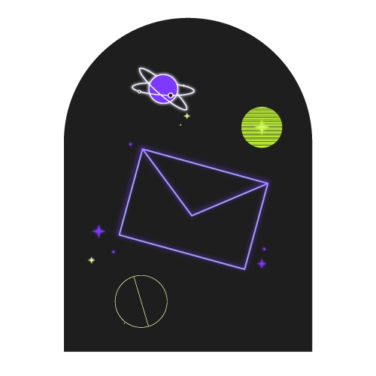Having a heads up on what C++ questions might be asked when meeting a potential employer is a great way to prepare, especially if your nerves get the better of you during interviews.
Being prepared for a programming interview is like studying for a test. You know the topic so well that you won’t forget what you need to know no matter how nervous you are.
I’ve put some of the most frequently asked questions and answers below to help you get a handle on the direction your interview might take so you are ready no matter what you’re asked.
Key C++ Interview Questions for Your QA Job Interview
Understanding what C++ interview questions can come up helps you prepare for your meeting. There will be different questions about the programming language depending on which of the various positions in the industry you're applying for. If you have never interviewed for C++ work before, then you may need to do more prep to function well in your interview but if you have been at it a long time, a C++ code refresher with a review of key concepts like command-line arguments, access specifiers, and dynamic memory allocation is good enough.
Important note: There will be different formats for different types of job interviews. You may be asked only questions or end up with some C++ practice problems that range from the basic, “Write a program to print a welcome text in a separate line” to the more complex, “Given an integer array, discover the subarray that has the greatest value when all of its elements are summed together. Use the array, {1, 2, -5, 4, -3, 2}.”
Either way, being prepared for any software testing interview questions and answers (as we discussed in this post) with lots of C++ knowledge in the mix is the best way to get the job you want.
The Basic Questions of C++
1. Can you define class?
This question is asked to make sure you have a basic understanding of C++ code.
Answer: Class specifies how the data is structured. It is the outline that defines the format of supported types.
2. Define “object”.
Another question to assess basic understanding of the C++ programming language, this one deal specifically with object-oriented programming.
Answer: Object is a real thing, such as a laptop or pen. It has state and behavior, not a pure virtual function. In the case of C++, an object's state means data and behavior and how it functions.
3. What are the features of OOP (object-oriented programming)?
C++ coding interview questions are used to make sure you know your stuff, like an object-oriented programming language. If you do not know the basics, you aren’t going to be able to handle the job.
Answer: The features of OOP are abstraction, encapsulation, inheritance, and polymorphism.
4. What is abstraction?
C++ programming interview questions include those showing a working knowledge of the language.
Answer: Abstraction is what is used to hide the internal workings of the program and only shows what the user needs to see.
How to Test C++ Code
1. What are comments in C++?
If you want to be a C++ code tester, you will be asked these defining questions.
Answer: Comments are pieces of source code that are useful to a programmer but not the compiler. They help add a description or extra information about the source code.
2. What is the difference between declaration and definition of a variable?
C++ programming language questions in an interview are specific if you are looking at testing code.
Answer: The declaration is specifying the data type of a particular variable and its name. The declaration tells the compiler to hold space for a variable in the memory based on the data type. The definition of a variable gives value so the linker can link references to the right entities.
3. Can you comment on the scope of a global and local variable?
Understanding variables in programming is paramount. Assessing understanding during a programming interview is crucial.
Answer: The scope of a variable is the area of program code where the variable is active. Local is when it is inside a code block and only active and accessible there. Global means the variable is accessible throughout the complete program.
4. If you have a global and local variable with the same name, how can you access the global?
Solid knowledge of programming is necessary to test code so clarifying your understanding will be a big part of programming interview questions.
Answer: If you have two variables with an identical name but one is local and the other global, the compiler gives precedent to the local one. If you need to access the global variable, then we use a “scope resolution operator (::)”
Advanced C++ Interview Questions
1. What is inheritance and its types?
Building on the basic interview questions about a basic function and assessing knowledge of more complex details.
Answer: Inheritance is when an object automatically takes on all the properties and behavior of the parent object. There are single, multiple, multilevel, hybrid, and hierarchical inheritance types.
2. What is multiple inheritance?
Further questions to delve deeper into your knowledge base of C++ object-oriented programming.
Answer: Multiple inheritances means that a class that is derived attains or inherits the properties of more than one class and is not limited to two.
3. What are the variables and data types in C++?
This interview question moves beyond definitions and into the workings of C++.
Answer: Variables are a name given to the memory location assigned to a data type. Naming a variable reserves its memory space for specific data types.
4. Can you define “constructor” and “deconstructor”?
Clarifying your knowledge of methods and processes.
Answer: A constructor is a specific method utilized to initialize an object that has just been created. It is called immediately after the memory is assigned to the new object. A destructor does the opposite and deallocates memory for an object and class members when the object is no longer viable.
Next Steps
No matter what job you’re seeking, going into your meeting prepared with a C++ refresher for interview questions and answers is the best method to be confident and function at your highest ability.
Sign up for The QA Lead newsletter for software testing tips and our latest podcast episodes to keep you updated on the best and brightest in the world of QA.
You can also become a member to access The QA Lead community forum where you can share best practices with other QAs and quality engineers. Hope to see you there!


